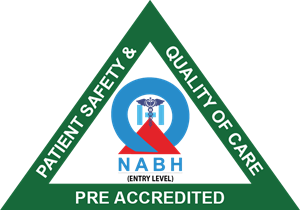Expecting parents often have worries about their baby’s health. One topic that might come up is the Rh factor in pregnancy. The Rh factor is a protein found on the surface of red blood cells. If your blood has this protein, you’re Rh positive. If not, you’re rhesus negative.
Understanding the Rh negative pregnancy process is crucial for ensuring your baby’s health, especially if the mother’s blood is Rh negative and the baby’s is Rh positive. This can lead to rh negative incompatibility. But don’t worry; knowing the basics and what steps to take can ensure a healthy baby. This article will help clear up what rhesus negative and pregnancy mean, discuss prevention measures, and share positive outcomes.
Understanding Rh Negative Pregnancy and Its Implications
Humans have different blood types, and part of these types is the Rh factor in pregnancy. People with the factor are Rh positive, and those without it are rh blood in pregnancy negative. Most people in the world are Rh positive, with only a small group being Rh-negative.
Sometimes, a baby can inherit a different Rh type, different from the mother. This happens due to passing down traits from both parents. It’s possible for a mom to be Rh-negative while her baby is Rh positive, a situation known as negative and positive blood group pregnancy.
Being Rh negative isn’t a health issue by itself. Yet, during pregnancy, it can lead to complications if the baby’s Rh status is positive. This can cause the mother’s body to treat the baby’s blood cells as foreign.
This process, called sensitization, means the mom’s body creates antibodies to fight the baby’s blood cells. If untreated, this can lead to serious health risks in later pregnancies. For those planning more children, knowing this helps prevent problems.
Management and Treatment Options for Rh-negative Pregnancy
Catching the Rh factor early on is crucial. This is why starting prenatal Rh factor testing and getting regular antibody screenings is vital. Babies and moms can avoid trouble with these first steps.
- Early Detection and Screening:
- Get tested early for the Rh factor.
- Regularly screen for antibodies.
Adopting a proactive approach in healthcare is vital. Timely attention and checks help in catching potential issues. Regular check-ups pave the way for a smooth pregnancy journey.
- Medical Interventions:
- Frequent monitoring.
- Swift and timely treatment approaches.
One major treatment includes Rh immune globulin, or RhIg injections. Receiving these injections can prevent sensitization of the mom’s immune system against the baby’s cells. This step goes a long way in mitigating any rh negative incompatibility problems and reduces the risk of Rh disease.
- Use of RhIg Injections:
- Prevents sensitization.
- Significantly reduces risks of Rh disease.
With modern medical advancements, treatments now promise higher success rates, creating a hopeful outlook for Rh-negative pregnancy deals. Trusted healthcare professionals provide the help you need.
Positive Outcomes and Support During an Rh Negative Pregnancy Journey
Thanks to today’s medical world, the number of severe Rh disease cases is rare. Proper interventions ensure that moms with rh factor incompatibility have a higher chance of giving birth to healthy babies.
Communication plays a vital role throughout this journey. Always maintain open discussions with your healthcare providers. This ensures you’re informed and well-prepared.
Community support is invaluable, too. Many Indian communities offer guidance for those experiencing a rhesus negative pregnancy.
- Community and Cultural Support:
- Seek guidance from your community.
- Share experiences of similar journeys.
Real-life success stories abound, showcasing how early detection and care led to healthy deliveries, despite rh negative incompatibility worries. Stay hopeful and trust the process.
Conclusion
When preparing for pregnancy, always prioritize early Rh factor screenings. Adopting preventive treatment is crucial to secure your baby’s health.
Remember, with proper medical attention, risks to your baby are minimized. Stay engaged with your caregivers and stay informed, ensuring peace of mind throughout your pregnancy. Every step you take leads to a positive and successful birth experience, regardless of Rh negative challenges.
Visit Shishira Hospital for expert care and personalized guidance on your pregnancy journey!



